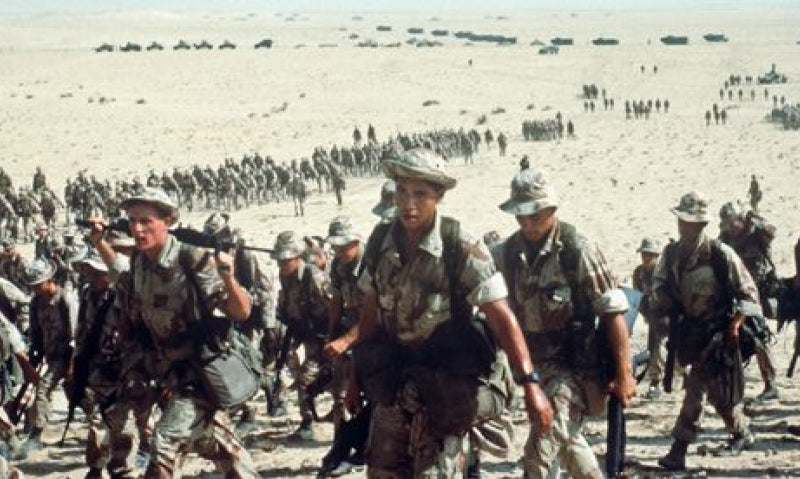Causes and Background:
The Persian Gulf War stemmed from Iraq and Iran's animosity, fueled by territorial disputes and ideological differences. Saddam Hussein's August 2, 1990 invasion of Kuwait, driven by oil resources and historical grievances, prompted swift international action.
International Coalition:
In response to Iraq's invasion of Kuwait, the UN promptly condemned it and demanded Iraqi withdrawal. The UN Security Council authorized force if Iraq resisted. A diverse coalition, including the US, UK, France, Saudi Arabia, and others, united to liberate Kuwait and enforce UN resolutions.
Operation Desert Storm:
Operation Desert Storm, the campaign to free Kuwait, began on January 17, 1991, with a massive air and missile strike. The coalition swiftly gained air supremacy and launched a ground offensive, resulting in the rapid defeat of Iraqi forces. The war concluded on February 28, 1991, with a UN-brokered ceasefire.
Humanitarian Impact:
Operation Desert Storm was completed but resulted in humanitarian fallout, with infrastructure destruction, environmental harm from oil spills, and the use of depleted uranium munitions, prompting ethical debates about military intervention and its repercussions.
Changing Geopolitical Dynamics:
The Persian Gulf War reshaped Middle Eastern geopolitics, leaving a lasting military presence with coalition forces and underscoring the strategic importance of Gulf oil reserves, alongside the vulnerability of global energy supplies to regional conflicts.
Legacy and Ongoing Challenges:
The Persian Gulf War's profound impact lingers in the Middle East, influencing subsequent conflicts, shaping the region's geopolitical landscape, and presenting ongoing challenges such as the Iraq War, regional power struggles, and the quest for stability in a volatile environment.
Conclusion:
The Persian Gulf War reshaped Middle Eastern geopolitics, leaving enduring lessons on military intervention and regional stability that remain relevant today.



